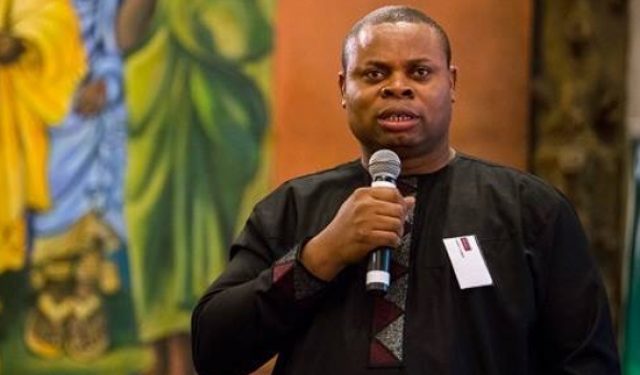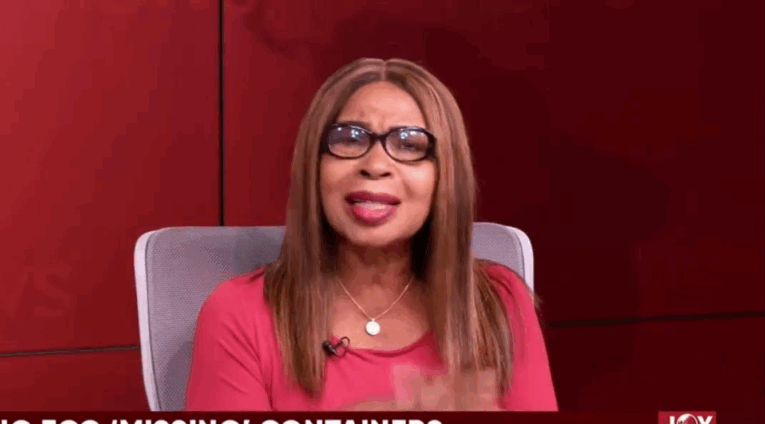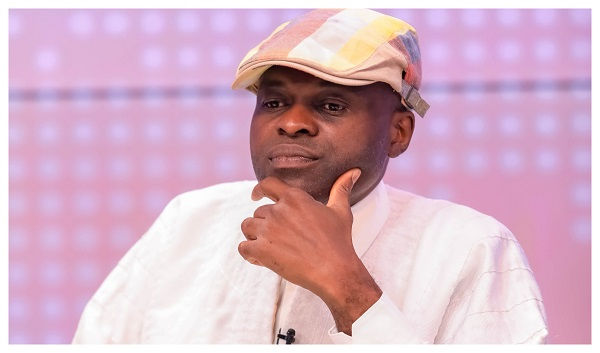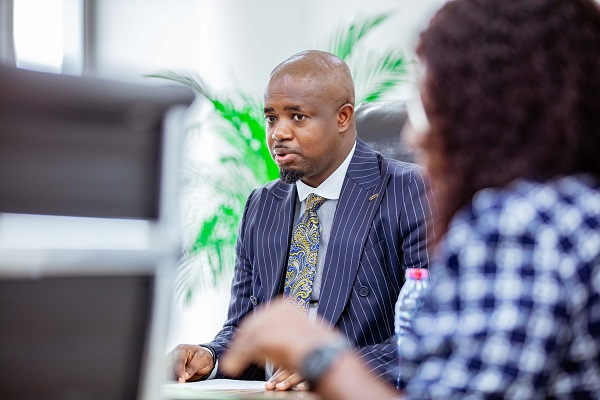Ghana Chief Justice Impeachment Row: Legal Experts React

The decision by suspended Chief Justice Gertrude Torkornoo to publicly address her ongoing impeachment proceedings has ignited a contentious debate within Ghana’s legal and political spheres, drawing widespread condemnation from various experts and lawyers. Critics argue that her actions constitute a grave violation of constitutional protocol, specifically Article 146 of Ghana’s 1992 Constitution, which mandates that such proceedings be held in camera, or in private.
Governance expert Victoria Bright, speaking on JoyNews’ Newsfile, unequivocally condemned the Chief Justice’s media engagement, stating, “I wish she respected constitutional procedures requiring privacy during impeachment.” Bright emphasized that the panel overseeing the impeachment comprises eminent individuals capable of impartial evaluation, and that hearing one side publicly is inappropriate. She questioned the propriety of the Chief Justice bypassing established authorities, asserting that the matter rests with the President and Council of State, not subject to personal interpretation. Similar sentiments were echoed by Lawyer Musa Ahmed, Head of Ahmed Legal Consult, who asserted that Torkornoo’s public commentary undermines judicial integrity and due process principles. Ahmed stated, “For me, she’s not setting any good example,” stressing that as Chief Justice, she must validate and respect the law. He cautioned that publicly presenting an ongoing case “seeks to do politics” and risks prejudicing the outcome, especially when the impeachment committee has yet to present its findings.
The National Democratic Congress (NDC) also joined the chorus of disapproval, with Godwin Edudzi Tameklo, Director of Legal Affairs, denouncing the press conference as “clearly illegal and untenable.” Speaking on TV3’s Key Points, Tameklo questioned the Chief Justice’s objective in publicizing petition details, aligning with NDC communications member Hamza Suhuyini’s contention that Torkornoo breached legal decorum. Franklin Cudjoe, President of IMANI Africa, further described the press conference as “unnecessary and potentially unhelpful” to the legal process. While acknowledging Torkornoo’s right to defend herself, Cudjoe stressed that the method should demonstrate fairness and restraint, arguing that engaging the public in an emotive manner detracts from the constitutional and legal framework. He particularly criticized the inclusion of personal and emotional themes, insisting that “These are serious matters that we are discussing here, and I can understand that you need your family around, but those issues are tangential.”
Constitutional lawyer Raymond Bidema reinforced these criticisms, asserting that the Chief Justice’s public address was “unconstitutional” and “not anchored in any law.” Speaking on Starr Today, Bidema highlighted that the Constitution provides internal mechanisms for addressing grievances through due process, and that public commentary by an embattled Chief Justice is an unprecedented and unwise precedent that politicizes national institutions. Private legal practitioner Yaw Anokye Frimpong went further, describing Torkornoo’s decision to speak to the media as “irresponsible and reckless,” akin to contempt of court. Frimpong suggested that Torkornoo missed an opportunity to resign honourably, which would have preserved her dignity and benefits, rather than risking public disgrace or forced removal. He criticized her accusations against the investigative committee as unfair, noting the committee members have no platform to respond, and speculated on her potential lack of competent advisors in managing the emotional and professional stress.
Conversely, some voices have defended Chief Justice Torkornoo’s actions or criticized the impeachment process itself. Kwasi Kwareteng, a senior communications member of the opposition New Patriotic Party (NPP), publicly questioned the integrity of the ongoing proceedings, alleging political motivation and a lack of transparency. Speaking on Asaase Radio’s The Forum, Kwareteng condemned criticisms against the Chief Justice for requesting fairness and openness in the removal process. He characterized the inquiry’s tone and the absence of clear procedural frameworks as fostering perceptions of political interference, stating that the proceedings “smack of some form of diabolism and political machinations.” Kwareteng dismissed the underlying petitions as “frivolous” and lacking merit, implicating the ruling National Democratic Congress (NDC) and President John Mahama, asserting: “It is clear that the NDC and John Mahama are bent on dismissing the Chief Justice.”
The Chief Justice herself, in her June 25, 2025, press briefing, had criticized the secrecy surrounding the committee’s investigations, describing the process as being conducted “in the darkness of Adu Lodge.” Her supporters view her public stance as a necessary act of transparency against perceived political targeting. The Minority Caucus in Parliament also called upon President John Dramani Mahama and the Attorney General to publicly respond to Justice Torkornoo’s allegations of procedural breaches, human rights violations, and a conspiracy to remove her from office, with MP Nana Agyei Baffour Awuah criticizing their continued silence.
The escalating controversy has raised significant alarms within Ghana’s legal community regarding judicial credibility. Multiple experts cite growing perceptions of partisanship and procedural irregularities, warning that public trust in the judiciary is eroding amid this unprecedented spectacle. Analysts note that when the head of the judiciary feels compelled to go public, it reflects a deeper crisis of institutional trust, exposing inadequate mechanisms for addressing judicial misconduct transparently. While the suspended Chief Justice’s approach has divided opinion, with supporters viewing it as necessary transparency and detractors maintaining judicial officers must “vindicate the law, not seek public sympathy,” the broader consensus is that the judiciary’s reputation is the real casualty. Legal professionals are now urging the establishment of non-partisan accountability frameworks to insulate future proceedings from political interference and restore public confidence. With no resolution imminent, this standoff threatens to further polarize Ghana’s legal landscape, potentially impacting the lead-up to the 2028 elections.
You may also like...
Diddy's Legal Troubles & Racketeering Trial

Music mogul Sean 'Diddy' Combs was acquitted of sex trafficking and racketeering charges but convicted on transportation...
Thomas Partey Faces Rape & Sexual Assault Charges

Former Arsenal midfielder Thomas Partey has been formally charged with multiple counts of rape and sexual assault by UK ...
Nigeria Universities Changes Admission Policies

JAMB has clarified its admission policies, rectifying a student's status, reiterating the necessity of its Central Admis...
Ghana's Economic Reforms & Gold Sector Initiatives

Ghana is undertaking a comprehensive economic overhaul with President John Dramani Mahama's 24-Hour Economy and Accelera...
WAFCON 2024 African Women's Football Tournament

The 2024 Women's Africa Cup of Nations opened with thrilling matches, seeing Nigeria's Super Falcons secure a dominant 3...
Emergence & Dynamics of Nigeria's ADC Coalition

A new opposition coalition, led by the African Democratic Congress (ADC), is emerging to challenge President Bola Ahmed ...
Demise of Olubadan of Ibadanland
Oba Owolabi Olakulehin, the 43rd Olubadan of Ibadanland, has died at 90, concluding a life of distinguished service in t...
Death of Nigerian Goalkeeping Legend Peter Rufai

Nigerian football mourns the death of legendary Super Eagles goalkeeper Peter Rufai, who passed away at 61. Known as 'Do...



